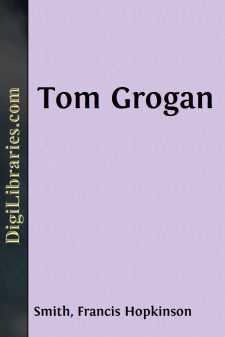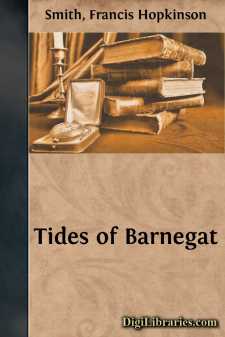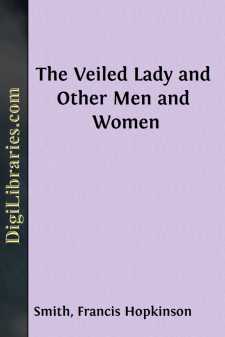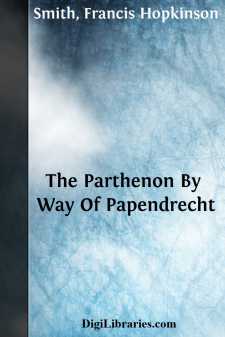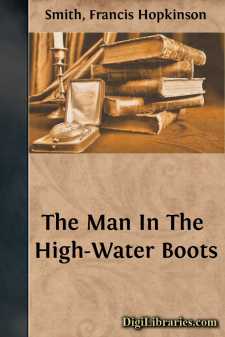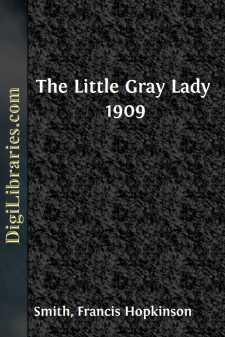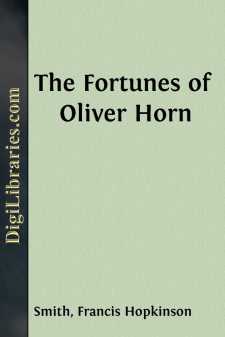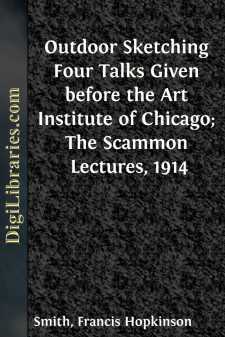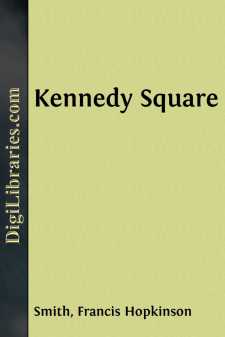Categories
- Antiques & Collectibles 13
- Architecture 36
- Art 48
- Bibles 22
- Biography & Autobiography 813
- Body, Mind & Spirit 142
- Business & Economics 28
- Children's Books 15
- Children's Fiction 12
- Computers 4
- Cooking 94
- Crafts & Hobbies 4
- Drama 346
- Education 46
- Family & Relationships 57
- Fiction 11828
- Games 19
- Gardening 17
- Health & Fitness 34
- History 1377
- House & Home 1
- Humor 147
- Juvenile Fiction 1873
- Juvenile Nonfiction 202
- Language Arts & Disciplines 88
- Law 16
- Literary Collections 686
- Literary Criticism 179
- Mathematics 13
- Medical 41
- Music 40
- Nature 179
- Non-Classifiable 1768
- Performing Arts 7
- Periodicals 1453
- Philosophy 64
- Photography 2
- Poetry 896
- Political Science 203
- Psychology 42
- Reference 154
- Religion 513
- Science 126
- Self-Help 84
- Social Science 81
- Sports & Recreation 34
- Study Aids 3
- Technology & Engineering 59
- Transportation 23
- Travel 463
- True Crime 29
Francis Hopkinson Smith
Francis Hopkinson Smith was an American author, artist, and engineer, born on October 23, 1838. He is best known for his engineering work on projects like the foundation of the Statue of Liberty and for his literary contributions, including novels like "Colonel Carter of Cartersville" and "Caleb West, Master Diver." Smith was also a talented painter and illustrator, frequently contributing to magazines and showcasing his artwork in various exhibitions.
Author's Books:
Sort by:
I. BABCOCK'S DISCOVERY Something worried Babcock. One could see that from the impatient gesture with which he turned away from the ferry window on learning he had half an hour to wait. He paced the slip with hands deep in his pockets, his head on his chest. Every now and then he stopped, snapped open his watch and shut it again quickly, as if to hurry the lagging minutes. For the first time in...
more...
CHAPTER I One lovely spring morning—and this story begins on a spring morning some fifty years or more ago—a joy of a morning that made one glad to be alive, when the radiant sunshine had turned the ribbon of a road that ran from Warehold village to Barnegat Light and the sea to satin, the wide marshes to velvet, and the belts of stunted pines to bands of purple—on this spring morning, then,...
more...
This collection of stories has been labelled "The Veiled Lady" as being the easiest way out of a dilemma; and yet the title may be misleading. While, beyond doubt, there is between these covers a most charming and lovable Houri, to whom the nightingales sing lullabies, there can also be found a surpassingly beautiful Venetian whose love affairs upset a Quarter, a common-sense, motherly nurse...
more...
Wilyum!.....WILYUM!" It was mine host of the Ferry Inn at Cook-ham who was calling, and at the top of his voice—and a big-chested voice it was—the sound leaping into crescendo as the object of his search remained hidden. Then he turned to me: "He's somewheres 'round the boat house—you can't miss him—there's too much of him!" "Are ye wantin' me, sor?"...
more...
Now and then in my various prowlings I have met a man with a personality; one with mental equipment, heart endowment, self-forgetfulness, and charm—the kind of charm that makes you glad when he comes and sorry when he goes. One was a big-chested, straight-backed, clear-eyed, clean-souled sea-dog, with arms of hickory, fingers of steel, and a brain in instant touch with a button marked "Experience...
more...
Once in a while there come to me out of the long ago the fragments of a story I have not thought of for years—one that has been hidden in the dim lumber-room of my brain where I store my by-gone memories. These fragments thrust themselves out of the past as do the cuffs of an old-fashioned coat, the flutings of a flounce, or the lacings of a bodice from out a quickly opened bureau drawer. Only when...
more...
Within a day's journey of Kennedy Square lay another wide breathing-space, its winding paths worn smooth by countless hurrying feet. Over its flat monotony straggled a line of gnarled willows, marking the wanderings of some guileless brook long since swallowed up and lost in the mazes of the great city like many another young life fresh from green fields and sunny hill-sides. This desert of weeds...
more...
CHAPTER I Peter was still poring over his ledger one dark afternoon in December, his bald head glistening like a huge ostrich egg under the flare of the overhead gas jets, when Patrick, the night watchman, catching sight of my face peering through the outer grating, opened the door of the Bank. The sight so late in the day was an unusual one, for in all the years that I have called at the Bank—ten,...
more...
COMPOSITION My chief reason for confining these four talks to the outdoor sketch is because I have been an outdoor painter since I was sixteen years of age; have never in my whole life painted what is known as a studio picture evolved from memory or from my inner consciousness, or from any one of my outdoor sketches. My pictures are begun and finished often at one sitting, never more than three...
more...
CHAPTER I On the precise day on which this story opens—some sixty or more years ago, to be exact—a bullet-headed, merry-eyed, mahogany-colored young darky stood on the top step of an old-fashioned, high-stoop house, craning his head up and down and across Kennedy Square in the effort to get the first glimpse of his master, St. George Wilmot Temple, attorney and counsellor-at-law, who was expected...
more...


